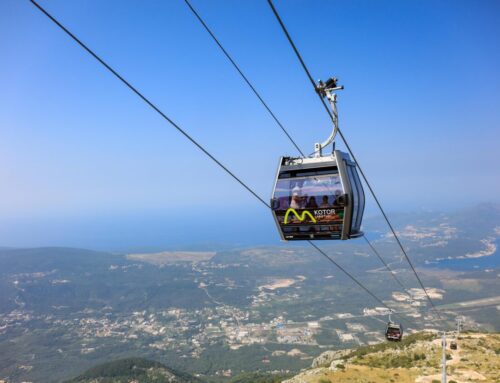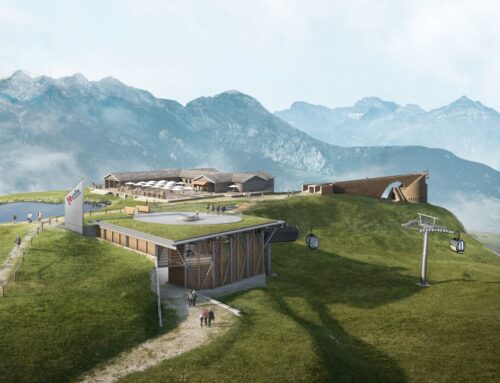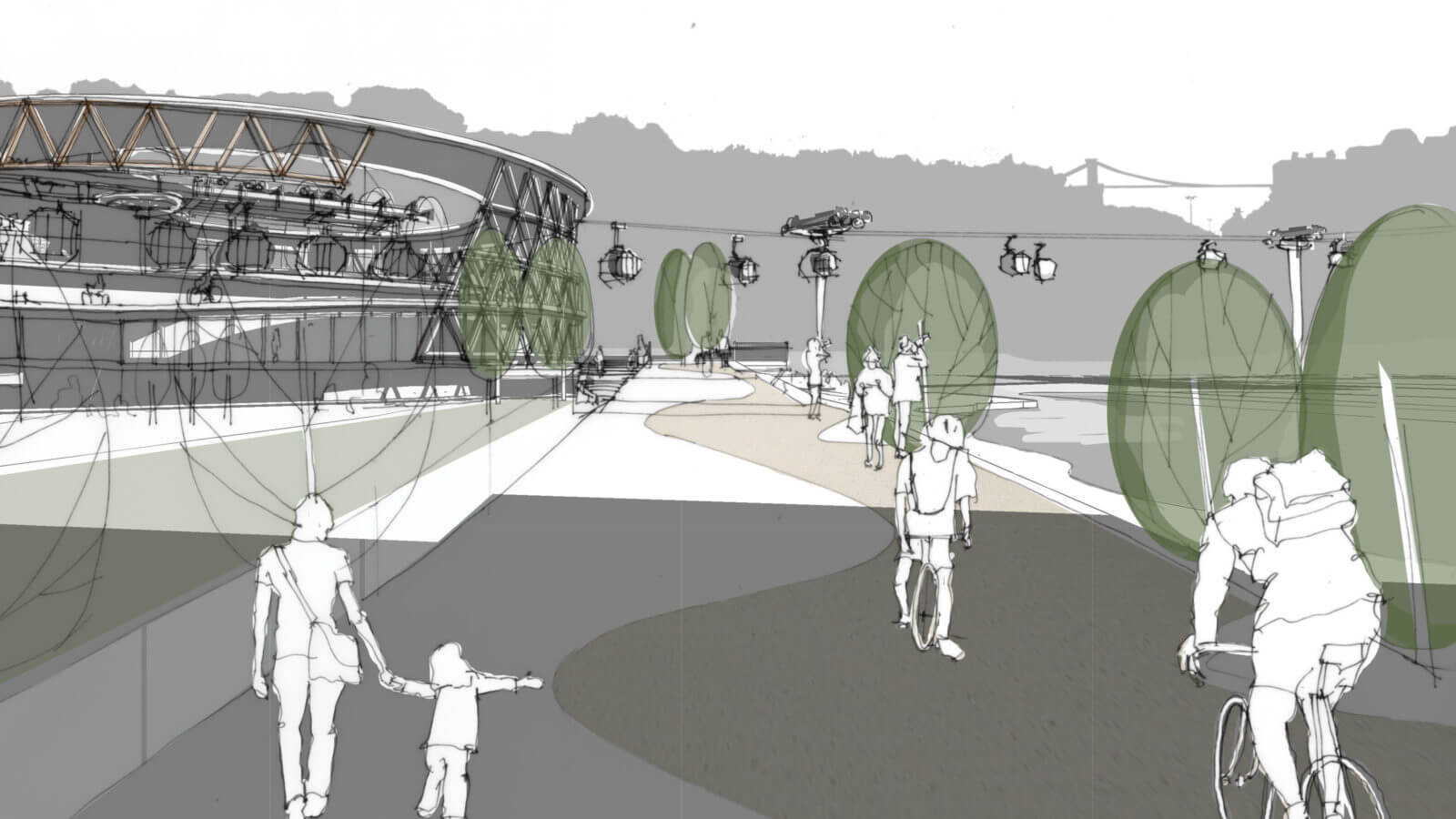
Cities, SI Urban 2/2020, Tourism
Cable car for commuters and tourists
Among other places, details of the idea are reported in the Bristol Post. According to the newspaper, Clifton Cable Company, which has been established specifically for the purpose, wants to build the cable car for commuters and tourists. As news portal Bristol 24/7 writes, the company consists of transport planners, property experts and architects.
Founders David Rhodes, James Broome and Richard White are convinced that the cable car could be an environmentally friendly and moreover affordable alternative to a metro system, which is likewise being discussed. Whereas the costs of the metro are estimated four billion pounds sterling, the costs of the cable car are quoted at 40 to 50 million. News portal Bristol 24/7 even estimates the investment cost at only 15 to 20 million pounds.
It is crazy that transport solutions are quickly sought underground rather than up in the air, White emphasises to the Bristol Post: “For developing cities like Medellín in Colombia, cable cars have been the easiest, lightest-touch solution.” According to Bristol 24/7, the instigators are already in discussions with cable car manufacturer POMA, which has assured them that a cable car would be suitable for Bristol.
Construction in two phases
Want to extend the cable car to Temple Meads railway station. Additional stops would be created in the areas of Redcliffe village, Wapping Wharf, the Harbourside, Underfall Yard and the Western Harbour. “The cable car will connect a transport hub at Temple Meads, a financial centre in the Old City, a leisure area on the Harbourside, a development site at the Western Harbour and one of the most popular locations in Bristol – the suspension bridge,” the Bristol Post quotes project planner White. Furthermore, in the second phase, it would connect to Ashton Gate Stadium, which would mean that football and rugby fans could also become cable car passengers.
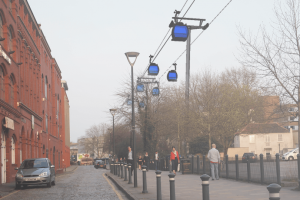
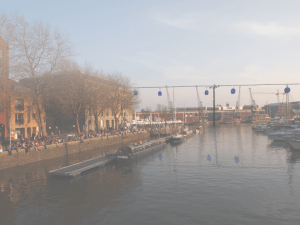
Up to 4,000 people per hour
The project developers anticipate a transport capacity of 2,000 people per hour, which could be expanded to up to 4,000. The planned route is 3.5 kilometres long and the journey time should be ten minutes. Passengers would be transported in 6-person gondolas – a good way to transport people in social bubbles during the coronavirus.
Plans extend by 2030
If the decision goes in favour of the cable car, the aerial transport solution could be completed within one to two years. The Clifton Cable Company plans for the second phase has around five years after the first – and even for a third in 2030. This last expansion stage would include stops on Brandon Hill and Park Street, at Bristol Royal Infirmary, Cabot Circus, the Old Market and Temple Quay, and once again at Temple Meads railway station. The journey time for this cable car is estimated at 15 minutes.
Private funding
The cable car would be privately financed. On the cost side, the instigators expect the maintenance costs of the cable car to be lower than for a comparable number of buses. “The ticket price would sit slightly higher than a bus but less than a taxi,” Rhodes assures the Bristol Post. In phase 1 of the cable car project, the focus is on paying tourists, although a broader target audience is planned for the final expansion, from which the local economy would benefit and which would bridge the social divide between poor and rich areas, as Broome argues in Bristol 24/7. Vincent Carrie, British Sales Manager for POMA, agrees with him: “In Bristol, like anywhere in the world, the cable car can be integrated into the network and expanded at any time.”
According to both media reports, the city government seems very open to the cable car plans and the tourist and transport boards have also commented positively on the plans.

